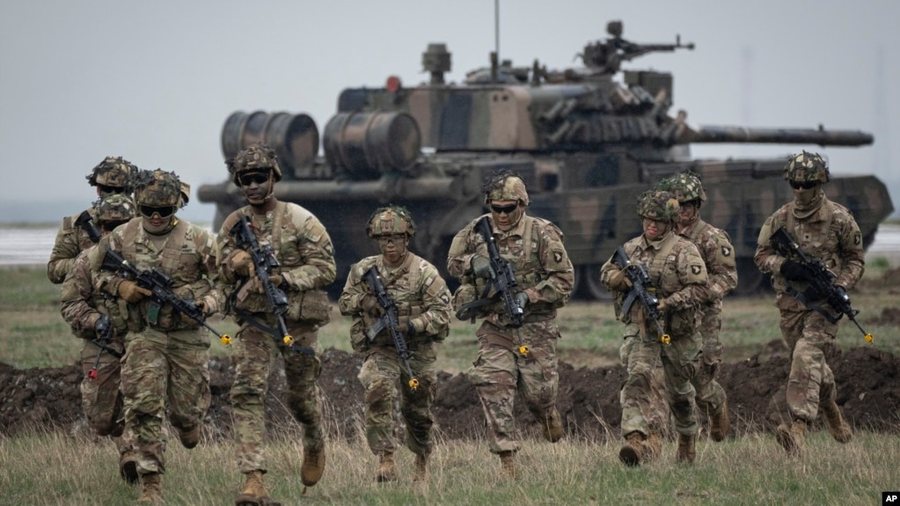
The Kremlin has denied reports that Russian officials have asked the United States to demand the withdrawal of NATO troops from countries near or bordering Russia.
These statements, made by Kremlin spokesman Dmitry Peskov, come after a senior Romanian presidential adviser appeared to say that Russian officials had made this request during high-level talks in Riyadh between delegations from Moscow and Washington.
Romanian official Cristian Diaconescu, who spoke to a television station in Romania, later retracted his statements, clarifying that such a request had been made in the past, in 2021, before the start of the Russian invasion of Ukraine in February 2022.
Russia has for years expressed anger, both publicly and privately, over the presence of NATO troops in countries such as the three Baltic states and Poland. It has also complained about NATO air defense systems in Poland and Romania. NATO’s eastward expansion – first in 1997 and then two rounds of enlargement in 2000 – was seen by many in the Kremlin as a hostile act and was partly used as a pretext for the invasion of Ukraine.
With the administration of US President Donald Trump signaling a radical new approach to European relations – he has repeated complaints that NATO members are not spending enough money on the alliance – there have been alarms in Europe that the Trump White House could concede to Russian demands.
Earlier this month, US Defense Secretary Pete Hegseth shocked the 32-member alliance when he openly ruled out Ukraine joining NATO and ruled out the possibility of US troops joining any peacekeeping effort in Ukraine. He also said that NATO would not come to the aid of any European country if it were involved in that effort and if it were attacked by Russia.
A pilot approaches a Ukrainian military helicopter at an air base near the front line in the Kherson region. File photo.
Speaking in an interview with CNN's Antena 3 on February 19, two days after US and Russian delegations met in Riyadh, Diaconescu appeared to suggest that Moscow had submitted a new request for NATO withdrawal.
"Their [Russians'] expectations are that, at some point, the US would cause European partners within NATO to withdraw from NATO's 1997 security guarantees," he said.
In subsequent statements to Romanian media, Diasconescu retracted this statement, saying he was referring to previous demands. The Americans and Europeans do not accept Russian demands, he said, “neither then nor now.”
Asked specifically by journalists about the Romanian statements, Peskov denied this assessment on February 21.
"No, it's not true, it doesn't match reality," he said. "Our position is that the advancement of military infrastructure towards our borders is worrying for us. Everyone knows this position, it's not a secret."
The president of Poland, whose country has been one of the most vocal supporters of Ukraine and has increased the deployment of NATO troops along the alliance's eastern flank, said on February 18 that he had received assurances from the United States that there would be no reduction in American troops.
"There is no concern that the US will reduce the level of its presence in our country, that the US will in any way withdraw from responsibilities or co-responsibilities for the security of this part of Europe," Andrzej Duda told reporters in Warsaw after meeting with Trump's special envoy, Keith Kellogg.
NATO reinforced its eastern forces after the launch of the Russian invasion of Ukraine, seeking to reassure members – particularly those that fell under Soviet control during the Cold War.
In total, there are eight NATO battle groups – “an enhanced presence” – deployed in eastern Europe and three Baltic states, with nearly 30,000 troops, according to the alliance’s latest figures.
“Putin’s objectives remain the same: to subjugate Ukraine and also to divide Europe and the United States,” Oana Lungescu, a former NATO spokeswoman, told Radio Free Europe’s Romanian Service. “So that’s why there’s less reason to speculate or panic, but to see what Europe’s interests are, and certainly what Romania’s interests are.” REL (A2 Televizion)











